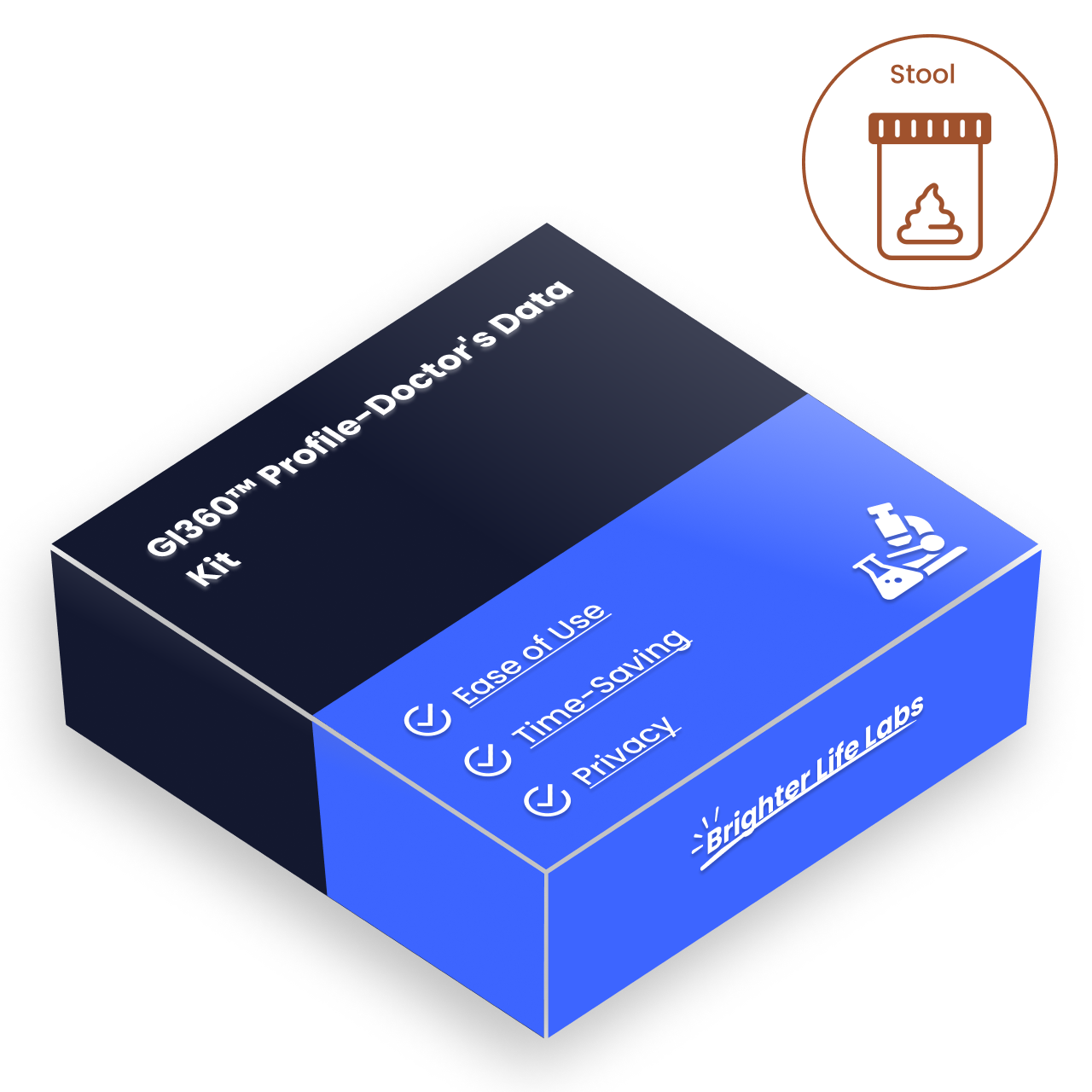1
/
of
1
Doctor's Data
GI360™ Profile-Doctor's Data Kit
GI360™ Profile-Doctor's Data Kit
Regular price
$525.00 USD
Regular price
Sale price
$525.00 USD
Unit price
/
per
Shipping calculated at checkout.
Couldn't load pickup availability
Note: This is a home collection test kit that will be mailed to you.
Fasting Required:
No
Lab:
Doctor's Data
Specimen:
Stool, 3 day collection
Results:
Average processing time 8-10 business days
Note: Result turnaround times are an estimate and are not guaranteed. Our reference lab may need additional time due to weather, holidays, confirmation/repeat testing, or equipment maintenance.
Special Instructions:
Discontinue the following 2 weeks before test: Antibiotics, antiparasitics, antifungals, or probiotic supplements, proton pump inhibitors (PPIs) and Bismuth. Discontinue 2 days before test: Aspirin and other NSAIDs, digestive enzymes, laxatives (particularly mineral oil and castor oil), activated charcoal, betaine HCI, antacids or bentonite clay. Do not collect samples when there is active bleeding from hemorrhoids or menstruation. Wait at least 4 weeks from a colonoscopy or barium enema before collecting. Do not contaminate the stool with urine or water.
Description:
The GI360™ Profile is a gut microbiota DNA analysis tool that identifies and characterizes the abundance and diversity of more than 45 targeted analytes that peer-reviewed research has shown to contribute to dysbiosis and other chronic disease states. The GI360™ can identify the presence of pathogenic viruses, bacteria, and parasites using multiplexed, real-time PCR. Viruses are the primary cause of acute diarrhea, and the least commonly tested. The identification of pathogenic bacteria, viruses and parasites improves treatment strategies and patient outcomes. The Dysbiosis Index (DI) is a calculation with scores from 1 to 5 based on the overall bacterial abundance and profile within the patient's sample as compared to a reference population. Values above 2 indicate a microbiota profile that differs from the defined normobiotic reference population (i.e., dysbiosis). The higher the DI above 2, the more the sample is considered to deviate from normobiosis.
Includes:
PCR Analysis for the Abundance and Diversity of Key Bacterial Populations of the GI Microbiome PCR Detection of Pathogenic Bacteria, Viruses and Parasites Comprehensive Parasitology by Microscopy MALDI-TOF ID of Cultured Bacteria and Yeast Broad Range of Stool Chemistry Markers Standardized Susceptibility Testing of Isolated Bacteria and Yeast
Additional Biomarkers Available for add-on at additional cost:
H. Pylori Antigen Macroscopic Exam Zonulin Family Protein, Stool
Share


